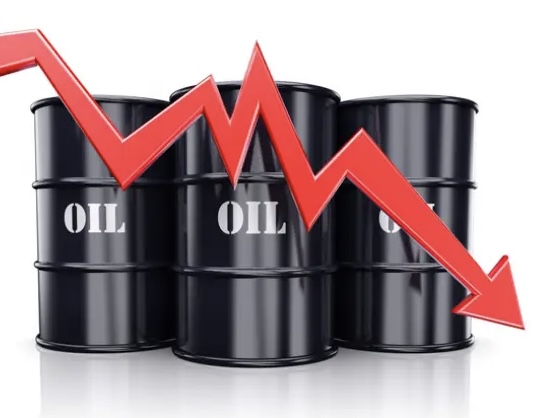Oil prices tumbled to their lowest levels in more than a month on Monday, driven by a shift in investor focus from recent geopolitical events to the underlying market fundamentals. Brent crude futures fell by 23 cents, or 0.3%, ending the day at $82.40 per barrel. Similarly, U.S. West Texas Intermediate (WTI) crude for August delivery dropped 35 cents to $79.78 per barrel. This decline reflects growing concerns about supply and demand imbalances rather than political developments.
Investor Sentiment and Market Fundamentals
In recent days, traders have largely ignored U.S. President Joe Biden’s decision to end his reelection bid and endorse Vice President Kamala Harris for the upcoming 2024 election. While this political shift could have influenced market sentiment, it appears to have had little effect on oil prices. Instead, market participants are concentrating on weaker demand and increasing inventories.
According to StoneX, global petroleum stockpiles have been rising, except in Europe, where inventories have been relatively stable. This build-up in inventories is contributing to the downward pressure on oil prices. Morgan Stanley analysts predict that the market will reach a balance by the end of the year but foresee a surplus in 2025. They estimate that Brent crude prices could fall to the mid-to-high $70s per barrel next year as the market adjusts.
UBS analyst Giovanni Staunovo commented on China’s recent decision to lower interest rates, noting that the move did not provide the anticipated boost to oil prices. “The Chinese interest rate cut has been too small to lift overall sentiment for crude oil,” Staunovo said. Despite China’s efforts to stimulate its economy, the impact on global oil demand has been limited.
Geopolitical Tensions and Market Impact
Geopolitical events in the Middle East, while significant, have not substantially impacted oil prices in the short term. Over the weekend, Israeli fighter jets targeted Houthi military positions in Yemen, resulting in casualties. The Houthis have vowed to continue their attacks on Israel, and Israeli forces have increased their operations in Gaza, leading to further casualties among Palestinians.
Despite these tensions, oil markets have remained focused on the economic fundamentals rather than geopolitical instability. Analysts suggest that the immediate impact of geopolitical events is overshadowed by the broader market dynamics, including inventory levels and demand forecasts.
Looking ahead, the U.S. Federal Reserve’s upcoming policy meeting, scheduled for July 30-31, will be closely watched by market participants. Investors are keen to see if the Fed will signal any changes in monetary policy that could affect oil prices. A potential rate cut by the Fed could be positive for risk-sensitive assets like oil, according to Staunovo.
Short-Term Market Projections
In the near term, oil markets are expected to remain under pressure from high inventory levels and signs of weak demand. Analysts will continue to monitor global economic indicators and energy policies that could influence market conditions.
While geopolitical tensions and political developments have provided some context, the focus remains on the fundamental aspects of the oil market. Rising inventories and subdued demand are key factors driving current market trends.
Energy policy discussions between Kamala Harris and Donald Trump, the leading contenders in the upcoming U.S. presidential election, are likely to address broader economic issues rather than immediate oil market policies. Citi analysts believe that neither candidate will propose drastic changes that could significantly impact oil and gas operations.
In summary, oil prices have fallen to their lowest levels in over a month due to increased inventories and weaker demand. Although geopolitical tensions and political shifts have been significant, the primary drivers of current market conditions are the fundamental imbalances within the oil market.
Source: Reuters



